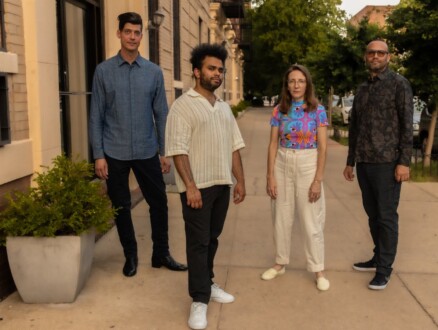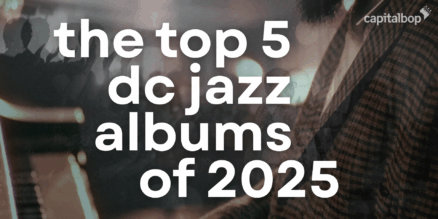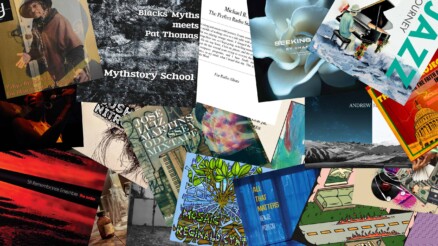Interview | Nicholas Payton reflects on race, music and the slow death of convention (AUDIO)

“Some musicians and fans thought that I was talking about the music itself, and the tradition, and its history. That’s totally not at all what I said. In fact, I thought I made it very clear to make a distinction between the word and … the art form. My feeling is that the word just has negative historical connotations.”
— Nicholas Payton, in WPFW interview (listen below)
by Tom Porter
CapitalBop contributor
Race is the Achilles’ heel of Western societies, and nowhere is this more pronounced than in discussions of African-American/Black Classical music, commonly referred to as jazz. Trumpeter Nicholas Payton last month started a firestorm when he discussed his opinions on the use of the word jazz on his blog. It is strange how easy it is for Americans to accept notions of Chinese, Indian, Japanese, Jewish music, etc., whereas referring to jazz as Black Music causes an uproar.
When asked earlier on in his career what jazz should be called, Payton’s response was “Black Music.” Charles Mingus said the word jazz means “Nigger” music and that it separates the musician from the money. Gigi Gryce was blacklisted by the establishment for daring to want to own and control the results of his creativity. Irving Mills put his name on early Duke Ellington compositions and to this day his descendants are benefiting monetarily from Mills’ trickery. Fortunately, Duke discovered this and gave him the boot.
African-American/Black Classical music is a gift from African people to the world. However, like the early settlers or the missionaries in Africa, European society could not accept the “gift givers” but kept the gifts while destroying the “gift givers.” Miles Davis said that he hired white musicians to play in his band but when they got their own bands they refused to hire any Black musicians. A well-known drummer recounted to me that when he spoke to the owner of Birdland about playing there again, he was told that he might consider booking him in the club if he had at least one white player in his band.
Night after night all around the world, including D.C., armies of young white men and ladies fan out with their recording equipment claiming that they are doing so because they love the music, only to start their own record labels – rarely with permission from the artist. Even more rarely do they compensate the musicians involved. Nicholas did not say it in this way, but the implications of what he said are here. All artists, whatever their ethnic background, should have the right to control the fruit of their labor.
What follows is a recording of the Dec. 12 interview that Dr. Jared Ball and I conducted with Nicholas on WPFW, D.C.’s jazz and justice radio station. It is available for streaming and download through the courtesy of WPFW.
Nicholas Payton interview, WPFW
[audio:https://www.capitalbop.com/wp-content/uploads/2011/12/Jazz_and_Justice_2011-12-12-Nicholas-Payton-Interview.mp3|titles=Nicholas Payton interview – WPFW]
—
Tom Porter is the former program director at WPFW, and a respected D.C.-based musicologist and cultural critic. You can hear more radio segments featuring him at voxunion.com.
African-American music, Black American Music, Black history, Black music, Charles Mingus, critical race theory, DC, DC jazz, Duke Ellington, Jared Ball, jazz, jazz history, jazz is dead, Miles Davis, Nicholas Payton, Tom Porter, Washington, white power structure





